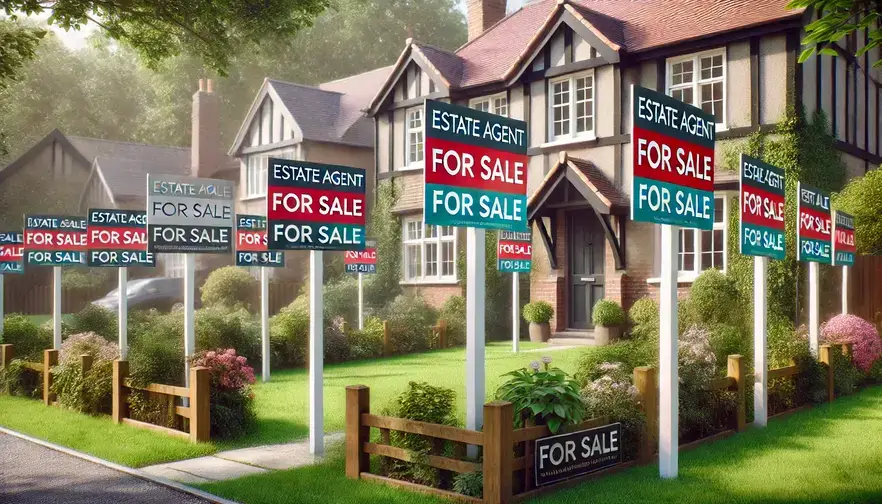Experience and Track Record
Years of Experience
An agent with years of experience is likely to have a deeper understanding of the market and the sales process. Experienced agents can provide valuable insights and handle unexpected challenges more effectively.
Number of Properties Sold
The number of properties an agent has sold, particularly in your area, can be a good indicator of their expertise and success. Agents with a strong track record in your locality are more familiar with local market trends and buyer preferences.
Specialisation in Property Types
Agents who specialise in selling properties similar to yours may have more relevant experience and a better network of potential buyers. Whether it's family homes, luxury properties, or investment properties, specialisation matters.
Client Testimonials and References
Speaking with previous clients can provide insights into the agent's reliability, communication skills, and overall performance. Look for testimonials and ask for references to get a better idea of what to expect.
Valuation Accuracy
Methods for Property Valuation
Understanding how agents determine the asking price for your property is crucial. Ask about their valuation methods and what factors they consider, such as recent sales of similar properties and current market conditions.
Comparing Valuation Strategies
Compare the valuation strategies of different agents. Some may rely more on data and analytics, while others might use their local market knowledge and experience. A balanced approach is often the most reliable.
Track Record of Achieving Asking Prices
An agent's success rate in achieving the asking price can indicate their negotiation skills and market expertise. Look for agents who consistently sell properties at or near the asking price.
Marketing Strategies
Online Listings and Platforms Used
Effective online marketing is essential for reaching a broad audience. Ask agents about the platforms they use to list properties, such as Rightmove, Zoopla, and social media channels.
Quality of Photography and Virtual Tours
High-quality photos and virtual tours can enhance your property's online presence and attract more potential buyers. Professional photography and virtual tours make your property stand out.
Use of Social Media and Digital Marketing
Agents who utilise social media and digital marketing can reach a wider audience. Ask about their strategies for promoting properties on platforms like Facebook, Instagram, and LinkedIn.
Traditional Marketing Methods
While digital marketing is crucial, traditional methods like print ads, flyers, and open houses still have their place. A comprehensive marketing plan should include a mix of both.
Fees and Costs
Understanding Fee Structures
Estate agents typically charge either a fixed fee or a percentage of the sale price. Understand the fee structure and what services are included. Compare the costs and benefits of each model.
Additional Costs
Be aware of any additional costs, such as marketing expenses, administrative fees, or charges for professional photography. Transparency in fees is crucial to avoid unexpected expenses.
Value for Money and Transparency
Evaluate whether the services provided justify the fees charged. Transparency in costs and a clear explanation of what you get for your money are important factors in choosing an agent.
Communication and Availability
Frequency of Updates
Regular updates keep you informed and reduce anxiety during the selling process. Ask how often the agent will update you and through what channels.
Preferred Methods of Communication
Knowing the agent's preferred method of communication ensures smooth interaction. Whether it's phone calls, emails, or text messages, the method should align with your preferences.
Availability During Weekends and Evenings
Agents who are available outside regular working hours can accommodate potential buyers' schedules more effectively. Flexibility in availability is a key factor in successful property viewings and negotiations.
Responsiveness to Inquiries
An agent's responsiveness to inquiries from both you and potential buyers can significantly impact the sale process. Choose an agent who is prompt and efficient in their communications.
Local Market Knowledge
Understanding of Local Property Trends
Local market knowledge is vital for accurate pricing and effective marketing. Agents should demonstrate an understanding of local property trends, buyer demographics, and key factors influencing the market.
Knowledge of the Neighborhood and Amenities
An agent familiar with the neighbourhood can highlight its key selling points, such as good schools, transportation links, and local amenities. This knowledge can make your property more attractive to potential buyers.
Success in Selling Similar Properties in the Area
Look for agents who have successfully sold properties similar to yours in the area. Their track record can give you confidence in their ability to market and sell your property.
Negotiation Skills
Approach to Handling Negotiations
Effective negotiation skills are crucial for securing the best possible deal. Ask agents about their approach to handling offers and counteroffers, and how they ensure you get the best price.
Success in Managing Multiple Offers
An agent's ability to manage multiple offers can impact the final sale price and terms. Ask about their strategies for handling competitive bidding situations.
Strategies for Maximising Sale Price
Agents should have clear strategies for maximising the sale price, such as creating a sense of urgency, highlighting the property's best features, and effectively managing buyer expectations.
Contract Terms and Flexibility
Length of the Contract
Understand the length of the contract and what happens if your property doesn't sell within that time frame. Contracts typically range from 8 to 12 weeks, but this can vary.
Terms for Terminating the Contract
Know the terms for terminating the contract if you're not satisfied with the agent's performance. Understanding your options can provide peace of mind and flexibility.
Flexibility in Contract Terms
Look for agents who offer flexibility in contract terms, such as shorter contract periods or the ability to switch agents without penalties. Flexibility can be crucial if your circumstances change.
Final Tips for Choosing the Best Agent
Summary of Key Points
Recap the most important factors to consider when comparing estate agents: experience, marketing strategies, fees, communication, local knowledge, negotiation skills, and contract terms.
Trusting Your Instincts
Trust your instincts when choosing an agent. If you feel comfortable and confident in their abilities, it's likely a good fit.
Importance of a Good Fit and Rapport
A good rapport with your agent can make the selling process smoother and more enjoyable. Choose an agent who listens to your needs and communicates clearly and effectively.
Conclusion
Comparing estate agents is a critical step in the home selling process. By considering these key factors and taking the time to interview multiple agents, you can find the best fit for your needs and ensure a successful sale. Happy selling!




